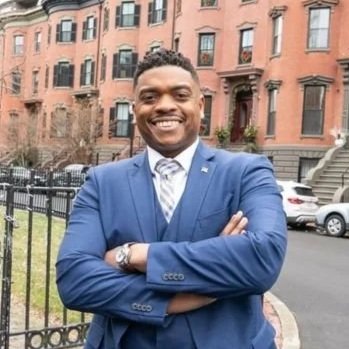
-
I believe our waterfront must remain a shared public good that promotes public health, recreation, and economic opportunity. Overall, we must protect our coastlines, prevent pollution, and increase equitable access for all. We should address long-term issues (such as the combined sewer overflow (CSO) system, which releases pollutants after heavy rainfall), and we should pursue more immediate solutions like continuing active testing of our waters to project how effects such as algal blooms will unfold in the future. We should also increase awareness about the general positive trends in the river's quality, while also highlighting when after storms the waterfronts are safe or not. Our waterfronts are central to our climate resilience, tourist economy, and recreational opportunities.
-
As the former Executive Director of the Toussaint Louverture Cultural Center (TLCC)—the first Haitian Cultural Center in New England, supported by the City of Boston—I’ve seen firsthand how public spaces, arts, and culture can be leveraged for community health and healing. Located in the West End just off the Charles River, TLCC stands as a powerful example of how cultural access and public resources intersect.
Beyond providing space, the city’s support has opened doors to waterfront access for the Haitian community through potential partnerships with organizations like HarborNow. These collaborations can offer youth and families new skills, experiences, and connections to nature that are proven to improve mental health and overall well-being.
I truly believe our waterfront must remain a shared public resource that supports health, recreation, and economic opportunity. One way to do this is by expanding programming—such as rowing, kayaking, and triathlon events in partnership with groups like the BAA, Charles River Conservancy, and local tourism organizations—to activate our waterways in inclusive and creative ways.
We must also support infrastructure investments that address challenges like the combined sewer overflow (CSO) system, which directly impacts water quality. With thoughtful partnerships and long-term planning, Boston’s waterfront can remain a beacon of health, equity, and opportunity for all communities.
-
We must also support infrastructure investments that address challenges like the combined sewer overflow (CSO) system, which directly impacts water quality. With thoughtful partnerships and long-term planning, Boston’s waterfront can remain a beacon of health, equity, and opportunity for all communities.
-
Boston’s working port drives our economy and must continue to be a source of good-paying union jobs. As City Councilor At-Large, I’ll support policies that expand access to those jobs for Boston residents by working with labor unions, Massport, and maritime industries to strengthen training and apprenticeship pipelines. We should start early by connecting high schools and community colleges to careers in logistics, shipping, and maritime technology.
We can preserve the port’s economic role while also expanding safe public access in non-operational areas. We see examples of this working right here in Boston—along the Southwest Corridor and the Greenway—where public spaces also serve as places where people work and contribute to the local economy.
As development moves forward, we need to align port investment with affordability, climate resilience, and equity. Jobs, environmental health, and public access shouldn’t compete—they can and should move forward together.
-
I would support expanding the fare-free bus pilots and making fare-free buses permanent in Boston, and would lobby the state to carry its share of the cost. I also believe that the City should explore sponsoring its own bus service in partnership with the MBTA (similar to Muni in San Francisco) that serves neighborhoods not sufficiently connected by the MBTA. I’d also support continuing to increase biking and pedestrian walking paths to connect additional residents with waterfront areas.

